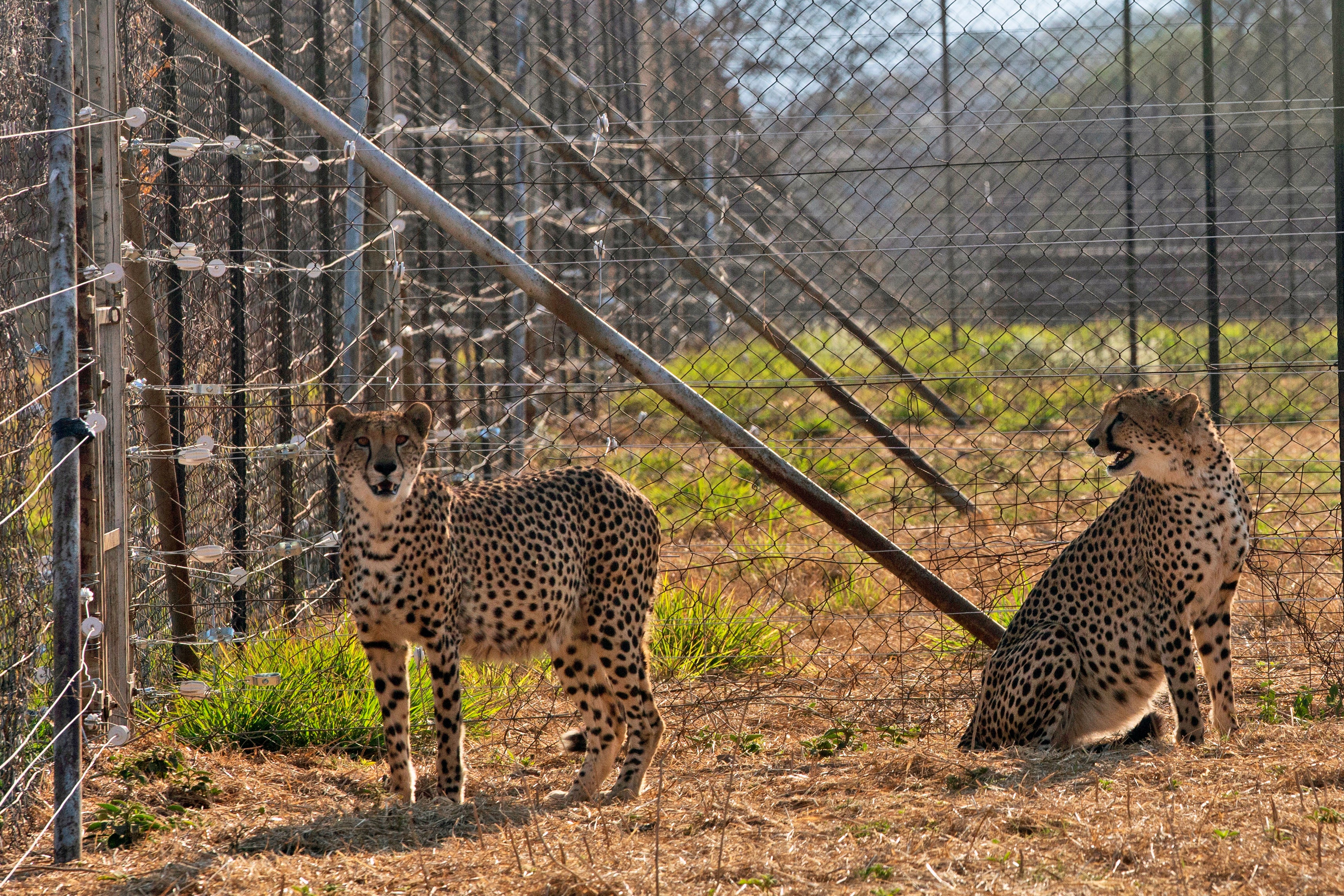Indian officials to be sent to study cheetahs in Africa as relocation project struggles
‘Exposure visits’ for staff aim to bridge gap between wildlife handling methods in India and Africa, official says

India will send a number of officials involved in its cheetah reintroduction project on research trips to Namibia and South Africa so they can learn how to better handle the big cats, after a string of deaths.
The country’s ambitious Project Cheetah plan seeks to restore a stable population of the world’s fastest land mammal by taking batches of them to India from African countries, but it has suffered a string of setbacks since the first animals arrived in September 2022.
Six cheetahs involved in the project have died, including three out of four cubs born in India to one of the relocated females.
The decision to soon send government officials to the African countries was announced after environment minister Bhupender Yadav met with Shivraj Singh Chauhan, chief minister of the central Madhya Pradesh state where the cheetahs – of which 14 remain – are housed, in Kuno National Park.
“The officials suggested exposure visits for the staff to learn more about how the cheetahs and the wildlife are best managed,” principal chief conservator of forests JS Chauhan told The Independent.
“There’s a vast difference between the approaches taken by the Indian officials and wildlife staff in Namibia and South Africa,” he said. The training visit aims to bridge the gap and provide the best possible handling of cheetahs brought to India, added Mr Chauhan.
It is not immediately clear when the visits will occur and how many there will be, but they will happen in due course, the forest official said.
Mr Chauhan added that the management aspect of handling cheetahs differs between the two continents, and India is looking to send its officials to learn the South African and Namibian perspective.
Federal minister Mr Yadav said the Narendra Modi administration is looking to provide money and the necessary logistical support for the revival of the cheetahs in India, including plans for effectively conserving their population.
Project Cheetah had been in the works for over a decade before it was finally launched by Mr Modi, who personally released the first animals into their enclosure. Asiatic cheetahs were declared extinct in India more than 70 years ago, and only a small number of specimens of the subspecies remain in Iran.
The six deaths in the first nine months of the project include three cubs who died of sweltering heat and weakness within two months of their birth in Madhya Pradesh. They were born on 29 March and were said to be in good health in the initial days.
Of the other three cheetahs to have died, one adult female succumbed to renal failure, while an adult male died of cardio-pulmonary failure and the third died of injuries sustained during an aggressive mating session with male cheetahs between March and May.
With concerns of overcrowding in the existing enclosures, officials are now looking to ready another sanctuary in Madhya Pradesh as an alternative home for the cheetahs, Mr Yadav said on Monday.
Officials at Kuno have released seven of the cheetahs into the wild from their enclosures, where they were initially placed after being brought to India to help with their acclimatisation and to assess their hunting skills.
On Sunday evening, another female cheetah was released from her enclosure.
Officials have played down the significance of losing three out of the four cheetah cubs born in India so far, arguing that cheetahs have a cub mortality rate of “up to 90 per cent” in the wild in Africa.
All the remaining cheetahs in Kuno are presently fine and healthy, Mr Chauhan told The Independent.
Join our commenting forum
Join thought-provoking conversations, follow other Independent readers and see their replies
Comments



Bookmark popover
Removed from bookmarks